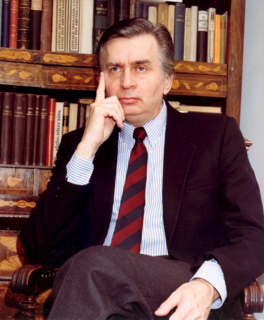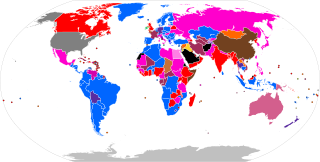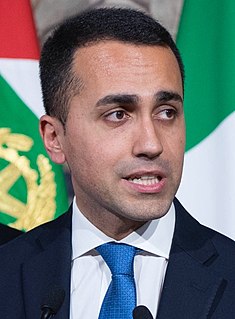Plurality voting is an electoral system in which each voter is allowed to vote for only one candidate, and the candidate who polls the most among their counterparts is elected. In a system based on single-member districts, it may be called first-past-the-post (FPTP), single-choice voting, simple plurality or relative/simple majority. In a system based on multi-member districts, it may be referred to as winner-takes-all or bloc voting. The system is often used to elect members of a legislative assembly or executive officers. It is the most common form of the system, and is used in most elections in the United States, the lower house in India, most elections in the United Kingdom, and Canada.

Party-list proportional representation systems are a family of voting systems emphasizing proportional representation (PR) in elections in which multiple candidates are elected through allocations to an electoral list. They can also be used as part of mixed additional member systems.
Parallel voting describes a mixed electoral system where voters in effect participate in two separate elections for a single chamber using different systems, and where the results in one election have little or no impact on the results of the other.

The National Assembly is the parliament of Hungary. The unicameral body consists of 199 members elected to 4-year terms. Election of members is based on a complex system involving both area and list election; parties must win at least 5% of the popular vote in order to enter the list of members of the assembly. The Assembly includes 25 standing committees to debate and report on introduced bills and to supervise the activities of the ministers. The Constitutional Court of Hungary has the right to challenge legislation on the grounds of constitutionality. The assembly has met in the Hungarian Parliament Building in Budapest since 1902.
Elections in Hungary are held at two levels: general elections to elect the members of the National Assembly and local elections to elect local authorities. European Parliament elections are also held every 5 years.

The Portuguese legislative election of 1985 took place on 6 October. In June of the same year, the former Prime-Minister, Mário Soares, had resigned from the job due to the lack of parliamentary support, the government was composed by a coalition of the two major parties, the center-right Social Democratic and the center-left Socialist, in what was called the Central Bloc, however this was an unstable balance of forces and several members of each party opposed such alliance.

Parliamentary elections were held in Hungary on 7 April 2002, with a second round of voting in 131 of the 176 single member constituencies on 21 April. Although Fidesz remained the largest party in the National Assembly despite receiving fewer votes than the Hungarian Socialist Party, the Socialist Party was able to form a coalition government with the Alliance of Free Democrats.

Parliamentary elections were held in Hungary on 10 May 1998, with a second round of voting in 175 of the 176 single member constituencies on 24 May.

General elections were held in Uruguay on 31 October 1999 alongside a double referendum, with a second round of the presidential election on 28 November. The elections were the first in Uruguay since World War I that were not dominated by the Colorado Party and the National Party. The Broad Front had begun gaining popularity in 1994, and had become key player in Uruguayan politics by 1999.

The 1990 Hungarian parliamentary elections were held in Hungary on 25 March 1990, with a second round of voting taking place in all but five single member constituencies on 8 April. They were the first completely free and competitive elections to be held in the country since 1945, and only the second free elections in the country's history. The conservative, nationalist Hungarian Democratic Forum (MDF) beat the liberal and more internationalist Alliance of Free Democrats, which had spearheaded opposition to Communist rule in 1989, to become the largest party in parliament. The Hungarian Socialist Party, the former Communist party, suffered a crushing defeat, winning only 33 seats for fourth place.
Plurality-at-large voting, also known as block vote or multiple non-transferable vote (MNTV), is a non-proportional voting system for electing several representatives from a single multimember electoral district using a series of check boxes and tallying votes similar to a plurality election. Multiple winners are elected simultaneously to serve the district. Block voting is not a system for obtaining proportional representation; instead the usual result is that where the candidates divide into definitive parties the most popular party in the district sees its full slate of candidates elected, resulting in a landslide.
The Hungarian Round Table Talks were a series of formalized, orderly and highly legalistic discussions held in Budapest, Hungary in the summer and autumn of 1989, inspired by the Polish model, that ended in the creation of a multi-party constitutional democracy and saw the Communist Party lose its 40-year grip on power.

Parliamentary elections were held in Hungary on 11 and 25 April 2010 to choose MPs for the National Assembly. They were the sixth free elections since the end of communist era. 386 members of parliament were elected in a combined system of party lists and electoral constituencies. The electoral law does not allow all adult citizens to stand for being elected unless they can validate 500 signatures of other citizens supporting their candidacy.

An electoral system is a set of rules that determine how elections and referendums are conducted and how their results are determined. Political electoral systems are organized by governments, while non-political elections may take place in business, non-profit organisations and informal organisations.

The 2014 Hungarian parliamentary election took place on 6 April 2014. This parliamentary election was the 7th since the 1990 first multi-party election. The result was a victory for the Fidesz–KDNP alliance, preserving its two-thirds majority, with Viktor Orbán remaining Prime Minister. It was the first election under the new Constitution of Hungary which came into force on 1 January 2012. The new electoral law also entered into force that day. For the first time since Hungary's transition to democracy, the election had a single round. The voters elected 199 MPs instead of the previous 386 lawmakers.

Péter Ákos Bod is a Hungarian politician and economist, who served as Minister of Industry and Trade in the cabinet of József Antall from 1990 to 1991 then Governor of the Hungarian National Bank from 1991 to 1994, when he resigned under the pressure of the Socialist Gyula Horn cabinet. He was also a Member of Parliament for the Hungarian Democratic Forum (MDF) from 1990 until his resignation in 1991. In 1996, he joined the Hungarian Democratic People's Party (MDNP) and was elected to its leadership.

The next Italian general election is due to be held no later than 28 May 2023.

Parliamentary elections was held in Mauritania in September 2018; the first round took place on 1 September, with a second round held on 15 September. At the national level, elections were held in 157 constituencies, each electing one member to the National Assembly. Elections were also held in 13 regional councils and 219 municipalities.


























